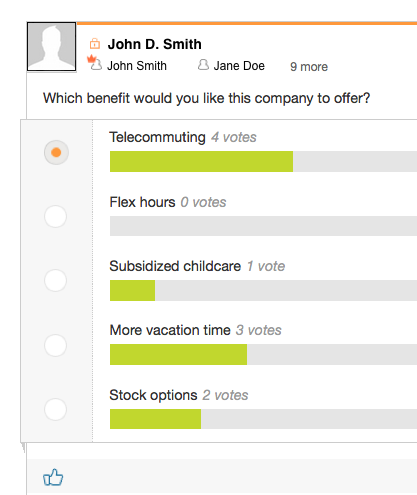 If history is any guide, voter turnout for America’s upcoming mid-term elections will be disappointingly low. Whatever the reason — people don’t know there’s an election, they’re disenfranchised, or just too busy to vote — it’s still not an indictment of democracy as a whole.
If history is any guide, voter turnout for America’s upcoming mid-term elections will be disappointingly low. Whatever the reason — people don’t know there’s an election, they’re disenfranchised, or just too busy to vote — it’s still not an indictment of democracy as a whole.
Despite a few problems, democracy is still the best system we have for making important decisions that affect a lot of people. But does democracy have any practical place in the business world? Does it have any real-world applications for large enterprises? Or is democracy antithetical in this world of autocratic, top-down corporate decision-making?
Let’s vote on that to find out.
The downside of democracy.
As the ancient Athenians first practiced it, democracy was all about giving political power (and responsibility) to the people themselves. Now that may sound good on paper, but getting everybody together at the same time to vote on every single issue was a huge effort. Democracy just wasn’t a super-efficient system for making critical, time-sensitive decisions when it was first invented. It is, however, a very fair system and, for a lot of the decisions that enterprises need to make, it’s pretty effective.
Management can make all of the major big decisions of running a business without needing input from its workers — that is, ostensibly, what they’re being paid for, right? — but there are lots of business decisions that broadly affect everyone at a company and that management might not want to make for fear of appearing biased or unfair to some. Regardless of management’s intentions, an unpopular decision can cause internal strife, reducing employee productivity and morale.
Fairness is innately human.
As recent studies have shown, humans have an innate sense of equitableness — that is, people know when they’re getting the short end of the straw. So the notion of letting everyone vote on a decision or issue is the only impartial way to make decisions affecting the people that will be most affected by them.

And that’s where tibbr can help. With the tibbr Enterprise Social Networking platform, anyone in the company can easily create a poll about anything. Instead of posting a status update, you just choose Poll and type in your question. Add a few possible responses (or let people add their own), give it an end-date, and you’re done — it’s instant democracy!
tibbr Polls lets people all over the organization weigh in on company decisions that affect them, regardless of whether they’re in the same office or across the planet.
tibbr Polls also helps you get deeper into decisions than just an ‘Aye’ or ‘Nay’ answer because people can add comments or attach images to clarify their responses so you get detailed context and their full rationale for which way they voted. (Try keeping all that straight on an email thread!)
So if you want your organization to make more equitable decisions, get a hands-on demo of tibbr Polls and the entire Enterprise Social Networking platform by signing up for a free trial now.





